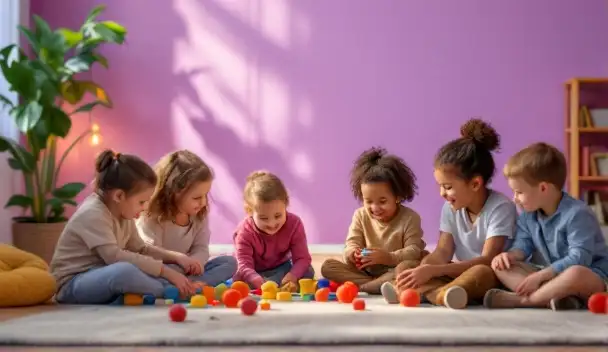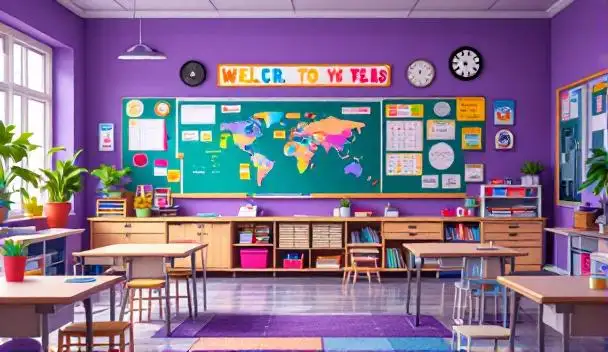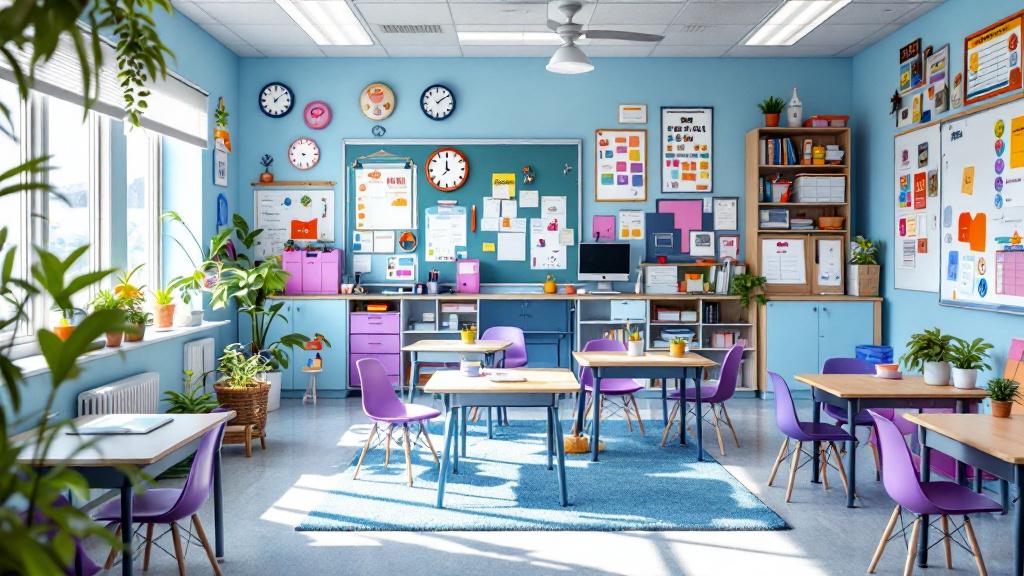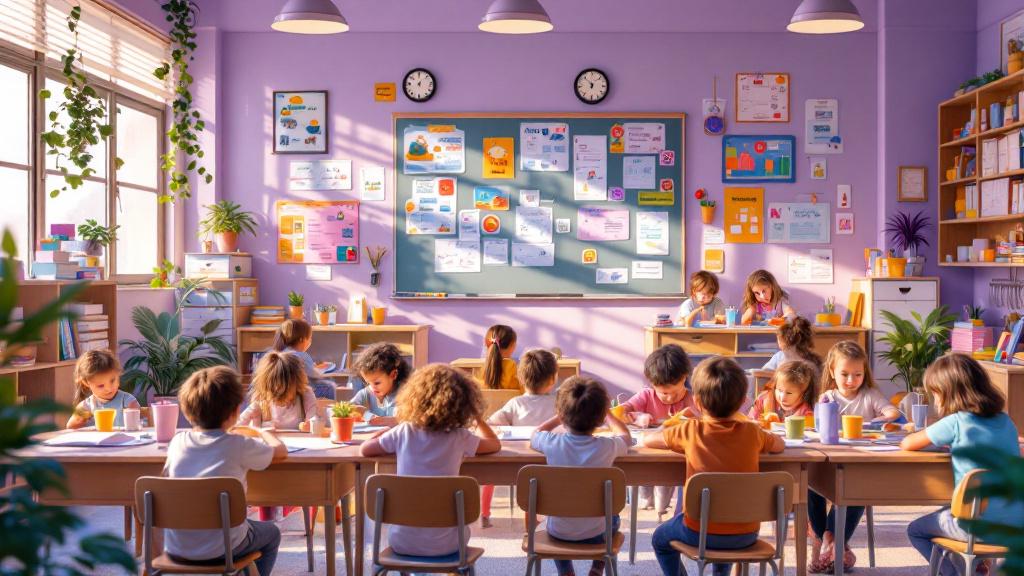Understanding the Role of Social Skills in Autism Spectrum Disorder
Building friendships is a pivotal aspect of social development for children with autism. While autism can pose significant challenges in understanding social cues, communicating effectively, and engaging in typical social interactions, targeted interventions like Applied Behavior Analysis (ABA) provide a structured pathway to overcoming these obstacles. This article explores how ABA therapy enhances social competence, fosters meaningful friendships, and contributes to the overall well-being of children on the autism spectrum.
The Impact of Autism on Social Interactions and How ABA Can Address These Challenges

What is the impact of autism on social interactions, and how can ABA help address these challenges?
Autism often affects a child's ability to engage successfully in social situations. Children with autism may find it difficult to interpret social cues like body language, facial expressions, and tone of voice. This can lead to challenges in making and maintaining friendships, which are essential for emotional well-being.
Communication issues are also common, ranging from limited speech to difficulties in understanding and using language for social purposes. These communication barriers can make it hard for children with autism to initiate conversations or respond appropriately, which affects their social integration.
Applied Behavior Analysis (ABA) offers effective strategies to help children overcome these hurdles. ABA uses a structured approach to teach essential social skills like taking turns during play, sharing, and understanding others’ feelings. Through techniques such as positive reinforcement, children are encouraged to learn and repeat social behaviors.
Methods like social stories, role-playing, and visual supports help make social concepts more understandable and less intimidating. For example, social stories can depict common social situations and appropriate responses, easing anxiety and promoting learned behaviors.
ABA therapists often work closely with parents, teachers, and caregivers to create a consistent learning environment. This collaboration ensures that children can practice new skills across various settings, promoting generalization and sustained improvement.
Overall, ABA supports children with autism by improving their social responsiveness, helping them develop meaningful relationships and experience greater acceptance within their communities.
The Benefits of ABA Therapy in Enhancing Social Skills and Friendship Development

What are the benefits of ABA therapy in enhancing social competence and friendship development in children with autism?
Applied Behavior Analysis (ABA) therapy is a highly structured, evidence-based approach that offers many advantages for children with autism, especially in the realm of social skills and friendship building. This therapy systematically targets the acquisition of essential social behaviors such as making eye contact, taking turns, recognizing others' emotions, and interpreting social cues. These skills are crucial for forming meaningful friendships and engaging effectively in social environments.
Through ABA, children learn to improve both their verbal and non-verbal communication skills. This not only makes it easier for them to initiate conversations but also helps them understand social interactions better, boosting their confidence and participation in peer activities.
Furthermore, ABA addresses challenging behaviors that might interfere with social engagement. By reducing these barriers, children become more receptive to social interactions and more capable of maintaining positive relationships.
Early and tailored ABA intervention can lead to significant improvements in emotional regulation, social understanding, and interactive abilities. These advancements contribute to a child's overall well-being by fostering a sense of belonging and enhancing their capacity to build and sustain friendships.
In summary, ABA therapy supports children in developing the social competencies necessary for forming friendships, increasing their social confidence, and leading to a higher quality of life.
Effective Strategies and Techniques Used in ABA for Social Skills Development
What strategies and techniques are used in ABA therapy to develop social skills in children with autism?
Applied Behavior Analysis (ABA) employs a variety of methods to help children with autism develop essential social skills. These strategies are carefully tailored to meet each child's unique needs and often involve breaking down complex skills into manageable steps.
One common approach includes structured activities like role-playing, social stories, and social scripts. These tools help children understand social rules and appropriate behaviors in different contexts. For example, social stories can illustrate situations such as sharing toys or taking turns, making the concepts easier to grasp.
Modeling and video modeling are also widely used. In modeling, therapists or peers demonstrate desired behaviors, while video modeling allows children to observe social interactions and replicate them. Positive reinforcement—praising or rewarding children when they display targeted behaviors like making eye contact or sharing—encourages continued practice.
Prompting techniques, such as verbal or physical cues, guide children in performing specific social actions until they can do so independently. Behavioral skills training combines these methods with repetition and reinforcement to solidify learning.
Group social skills training sessions help children practice interacting with peers in a safe environment. These settings promote generalization, enabling children to apply learned skills in various settings, including home and community.
Furthermore, ABA addresses non-verbal communication, empathy, emotional understanding, conflict resolution, and problem-solving skills. The therapy sessions are adaptable to each child's progress, with regular assessments guiding the interventions.
Involving family members and caregivers in reinforcement strategies ensures consistency and supports ongoing development beyond formal therapy sessions.
Overall, ABA’s structured, evidence-based techniques foster meaningful social engagement, emotional growth, and better peer relationships for children with autism.
Structured Teaching Methods and Role-Playing in ABA

How does ABA therapy improve social skills and facilitate friendship building in children with autism?
Applied Behavior Analysis (ABA) therapy focuses on teaching children with autism targeted social skills through a variety of structured, evidence-based techniques. Central to this approach are methods such as discrete trial training, social stories, and modeling, which systematically break down complex social behaviors into manageable steps.
Discrete trial training involves repetitive practice and reinforcement of specific social skills. For example, a child might be encouraged to initiate a conversation or share toys, with each successful attempt reinforced with praise or rewards. This repeat-and-reward process helps solidify socially appropriate responses.
Social stories serve as visual and written narratives that prepare children for real-life social interactions. These stories describe situations like sharing or turn-taking, helping children understand what behavior is expected in different contexts. Visual aids and clear language make abstract social concepts more accessible.
Modeling, another vital strategy in ABA, involves demonstrating desired behaviors. Therapists or parents act out social situations, allowing children to observe proper social responses and imitate them. Role-playing complements modeling by giving children a chance to practice social interactions in a safe, controlled environment.
All these techniques foster confidence and competence in social skills such as making eye contact, understanding social cues, exchanging greetings, and engaging in cooperative play. Reinforcement strategies motivate children to continue practicing these behaviors.
Additionally, ABA therapists collaborate with families to reinforce skills at home and in community settings, promoting the generalization of social behaviors beyond therapy sessions. The overall goal is to help children form meaningful friendships, navigate social situations more effectively, and improve their overall quality of life.
For more details on how role-playing and social stories enhance ABA therapy, search: "Role-playing and social stories in ABA."
Understanding Autism’s Challenges and How ABA Addresses Them

What is the impact of autism on social interactions, and how can ABA help address these challenges?
Children with autism often face difficulties in social communication, understanding social cues, and engaging in typical peer interactions. These challenges can lead to feelings of isolation, frustration, and difficulty forming lasting friendships.
Autism can make it harder for children to interpret facial expressions, body language, and tone of voice, all vital for social exchanges. They might struggle with initiating conversations, taking turns, sharing, or understanding others' emotions.
Applied Behavior Analysis (ABA) offers effective strategies to address these issues. ABA systematically teaches social skills by breaking down complex behaviors into smaller, manageable steps. Through techniques like positive reinforcement, modeling, and prompting, children learn behaviors such as initiating conversations, recognizing emotions, and engaging in reciprocal play.
In practice, ABA therapists might use social stories and role-playing to simulate real-life interactions, helping children become familiar with social expectations. Group activities and peer-mediated instruction further promote generalization of these skills in natural settings.
Collaboration with parents, teachers, and caregivers ensures consistency and provides opportunities for children to practice skills across environments. Visual supports, like schedules and social stories, help children understand social routines, reducing anxiety and promoting confidence.
Ultimately, ABA supports children in enhancing their social responsiveness and forming meaningful connections, leading to improved peer relationships and greater inclusion in community activities.
Fostering Social Skills through Playdates and Community Activities

How does ABA therapy support children with autism in establishing and maintaining friendships?
ABA (Applied Behavior Analysis) therapy is a structured and evidence-based approach that plays a vital role in helping children with autism develop and sustain friendships. This therapy focuses on teaching social skills by breaking down complex behaviors into smaller, manageable steps.
Through activities like social stories, role-playing, and visual supports, ABA therapists help children learn to initiate conversations, maintain eye contact, take turns, and interpret social cues. These activities are reinforced with positive praise or rewards, encouraging children to practice and embed new behaviors.
ABA therapy also emphasizes emotional regulation and understanding social contexts, which are essential for meaningful interactions. By creating opportunities for children to explore shared interests—such as hobbies, clubs, or group activities—therapists foster confidence and interest-based friendships.
Moreover, ABA helps address challenges like sensory sensitivities and repetitive behaviors that could interfere with socializing. By systematically teaching coping strategies and appropriate social responses, children become better equipped to navigate social environments.
Overall, ABA therapy supports friendship-building by promoting social understanding, encouraging positive interactions, and creating inclusive settings that enable children with autism to connect with peers more comfortably and lastingly.
Creating a Supportive Environment for Social Growth
What are home supports, social skills workshops, and peer education?
Creating a nurturing environment at home is essential for developing social skills in children with autism. Parents can establish a 'social skills workshop' at home by setting up dedicated times and spaces where children practice social behaviors like sharing, taking turns, and understanding social cues. Using visual aids, social stories, and role-playing can make learning these skills engaging and effective.
Social skills workshops or groups provide structured settings specifically designed for children with autism to interact with peers. These programs often include activities tailored to individual needs, focusing on developing conversational skills, emotional literacy, and friendship-building strategies. Such environments allow children to practice social interactions in a safe and supportive setting, fostering confidence and competence.
Peer education involves teaching classmates and peers about autism, promoting understanding and acceptance. When peers are informed, they are more likely to include children with autism in activities and social groups, creating a more welcoming environment. This support can reduce feelings of loneliness and help children with autism develop lasting friendships.
How does the impact of autism influence social interactions and how can ABA help?
Autism can significantly affect social interactions, often making it challenging for children to communicate effectively, interpret social cues, and maintain peer relationships. Difficulties with nonverbal communication, understanding emotions, and managing sensory overload can contribute to social withdrawal.
Applied Behavior Analysis (ABA) offers a structured approach to address these challenges. It systematically teaches foundational social skills such as initiating conversations, turn-taking, recognizing emotions, and respecting personal boundaries. Using techniques like positive reinforcement, modeling, and visual supports, ABA therapists help children acquire social behaviors step-by-step.
ABA also focuses on generalization, ensuring children can apply these skills across various environments like home, school, and community. Through individual sessions, group activities, and real-life practice, ABA supports children in becoming more responsive and engaged in social situations. This treatment significantly enhances their ability to form and maintain friendships, improving overall social competence.
Additional Support Strategies
Alongside formal interventions, supporting ongoing social development involves creating opportunities for peer interaction through playdates, clubs, and community activities. Encouraging children to explore their interests helps foster friendships based on shared passions.
Inclusion efforts, such as autism-friendly events and school programs with social skills curricula, further facilitate social growth. Patience, positivity, and celebrating small successes help motivate children, reinforcing their confidence in social settings.
By combining structured supports at home and in the community with professional interventions like ABA, children with autism can develop vital social skills that open pathways to friendship, belonging, and happiness.
The Role of Parents, Caregivers, and Educators in Facilitating Friendships
Support from parents, caregivers, and educators plays a vital part in helping children with autism develop friendships. At home, parents can introduce social concepts through simple language and model appropriate interactions, such as sharing, taking turns, and showing empathy. Engaging children in role-playing and using visual aids like social stories can make understanding social cues clearer.
Creating opportunities for social engagement outside the home is equally important. Parents and caregivers can arrange playdates or join community groups that align with the child’s interests. These settings offer natural environments for practicing social skills and forming bonds.
Educators also contribute significantly by integrating social skills training into the school day. Classroom activities that promote teamwork and cooperation help children learn to interact positively with peers. Schools with specialized programs or support groups can further foster friendships and social confidence.
Parental involvement is especially reinforced by professional guidance, such as consulting with ABA therapists. These experts develop tailored programs focusing on essential skills like initiating conversations, understanding social cues, and conflict resolution. Therapies often include role-playing, social stories, and visual supports to teach these skills systematically.
Overall, consistent support and practice at home, in school, and within the community create a nurturing environment where children with autism can thrive socially, build friendships, and enjoy companionship.
| Support Strategies | Implementation Methods | Goal |
|---|---|---|
| Social Modeling | Demonstrating social behaviors daily | Learning appropriate social responses |
| Visual Supports | Using social stories and pictures | Clarifying social cues and expectations |
| Parental Involvement | Arranging playdates and participating in community events | Providing real-world social practice |
| School-based Activities | Cooperative projects and social skills groups | Developing peer relationships |
| Professional Guidance | ABA therapy and targeted coaching | Building specific social skills |
Combining these efforts creates a comprehensive approach to nurturing friendships, boosting social confidence, and supporting emotional well-being for children on the autism spectrum.
Building Friendships, Improving Lives through ABA
The development of social skills through ABA therapy plays a crucial role in helping children with autism build and maintain friendships, which are essential for emotional support, confidence, and overall happiness. By employing structured techniques like social stories, role-playing, modeling, and reinforcement, ABA therapists can equip children with the tools needed to understand social cues, initiate interactions, and navigate complex social scenarios. Support from parents, educators, and community programs amplifies these efforts, creating a nurturing environment where children can thrive socially. Early intervention, personalized strategies, and ongoing practice are key to fostering lasting friendships that significantly enhance the quality of life for children on the autism spectrum, offering them joy, belonging, and a sense of community.
References
- How Parents Can Help Their Child with Autism Build Friendships
- How ABA Therapy Helps With Social Skills
- 5 Steps to Help your Child with Autism Make Friends - Childwise ABA
- Autism and Friendships: Building Connections - All Star ABA
- ABA Therapy for Kids: Making Friends and Social Skills
- Applied Behavior Analysis (ABA) | Autism Speaks
- 6 Life-Changing Benefits of ABA Therapy for Children with Autism
- Top 7 Benefits Of ABA Therapy For Autistic Children





































































































